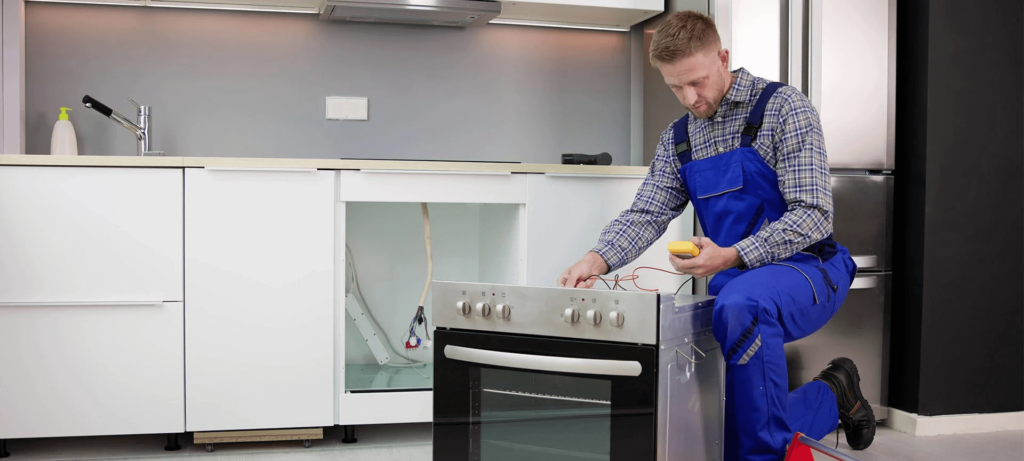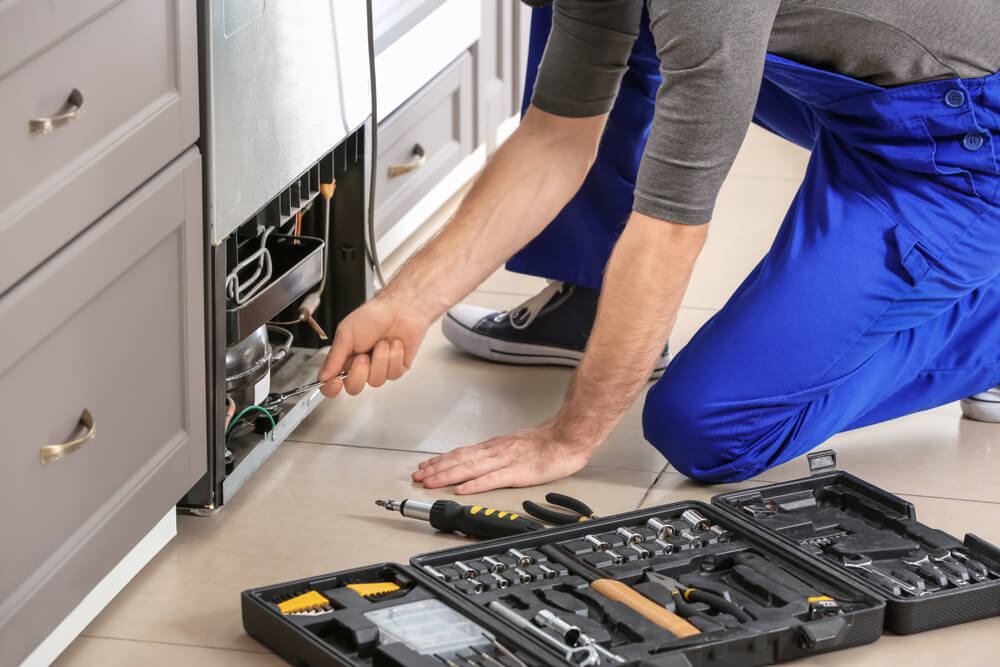
Greetings, fellow eco-conscious consumers! In our ever-evolving world, the question of whether to repair or replace your appliances is becoming increasingly important. We’re here to dive deep into this decision, explore the environmental consequences, and provide you with a detailed guide on how to make the best choice for the planet and your pocket.
The Age-Old Dilemma: Repair or Replace?
Let’s start by acknowledging that appliances are the unsung heroes of our daily lives. They wash our clothes, cook our meals, and keep our food fresh. However, like all heroes, they can show signs of wear and tear. When your appliance starts acting up, the dilemma arises – do you repair it or replace it? The decision you make can have far-reaching consequences for the environment.
Repairing Your Appliance: A Closer Look
Repairing your appliance can seem like the most frugal choice, but it’s not just about saving money. The impact on the environment is significant. Let’s break it down:
Pros of Repairing:
- Reduced Waste: When you repair your appliance, you’re preventing it from ending up in a landfill prematurely. This not only conserves resources but also reduces the amount of electronic waste in the world, which is a massive win for the environment.
- Lower Energy Consumption: Older appliances can be energy hogs. When you repair them, you might be able to make them more energy-efficient, ultimately reducing your carbon footprint.
Cons of Repairing:
- Limited Lifespan: While repairs can breathe new life into your appliance, they can’t turn back time. Your appliance might break down again, leading to more frequent repairs. This can result in a continuous cycle of repairs, ultimately costing you more in the long run.
- Potentially Harmful Chemicals: Some repair processes may involve the use of chemicals, refrigerants, or materials that could be harmful to the environment if not handled properly. It’s essential to choose repair professionals who are mindful of eco-friendly practices.
Replacing Your Appliance: Is It Really Greener?

On the other hand, replacing your appliance might seem like a fresh start, but it also comes with its environmental impact. Let’s take a closer look:
Pros of Replacing:
- Energy Efficiency: Newer appliances are designed to be more energy-efficient. This can lead to lower energy consumption and reduced greenhouse gas emissions. The long-term savings on your energy bills can also be considerable.
- Advanced Features: Modern appliances often come with advanced features that can further reduce your environmental impact. For instance, dishwashers and washing machines now offer water-saving options, which help conserve this precious resource.
Cons of Replacing:
- Manufacturing Impact: Producing a new appliance consumes resources and energy. The manufacturing process can generate pollution and contribute to greenhouse gas emissions. The environmental cost of creating a new appliance is significant.
- Electronic Waste: Disposing of your old appliance, especially if not done responsibly, can contribute to the growing problem of electronic waste. These discarded appliances can leach harmful materials into the environment if not properly recycled.
So, Repair or Replace: What’s the Verdict?
You might be thinking, “Just tell me which one’s better for the environment already!” Well, here’s the catch – it’s not a one-size-fits-all answer. The best choice depends on various factors:
Age of the Appliance
Consider the age of your appliance. If it’s a cherished family relic from the last century and it keeps breaking down, it might be time to consider an eco-friendly upgrade. However, if it’s relatively new and just needs minor repairs, fixing it can be the greener choice.
Older Appliances: If your appliance has reached the end of its life expectancy, frequent repairs might only prolong the inevitable. In this case, replacing it with a more energy-efficient model is often the smarter choice.
Newer Appliances: A relatively new appliance might still have many years of use left in it. Repairing it can extend its lifespan, reducing the need for new resources and manufacturing emissions.
Energy Efficiency Matters
Consider the energy efficiency of your current appliance. Older models can be energy guzzlers, which not only hurt your wallet but also contribute to environmental damage. When you repair, there’s a chance to improve efficiency, but it may not match the energy savings of a new model.
Older, Inefficient Appliances: If your appliance belongs to a bygone era of inefficiency, replacing it with an energy-efficient model can make a significant impact on your energy bills and carbon footprint.
Newer, Energy-Efficient Appliances: If your appliance is already energy-efficient, repairing it to extend its life may be the more environmentally responsible choice.
Type of Appliance Matters
Certain appliances have a more significant environmental impact than others. For instance, refrigerators and air conditioners contain refrigerants that can harm the ozone layer if not handled properly. This adds a layer of complexity to the repair vs. replace decision for these appliances.
High-Impact Appliances: Refrigerators, air conditioners, and other appliances with ozone-depleting refrigerants require special consideration. Repairing these appliances can be tricky and costly, and their environmental impact is substantial.
Low-Impact Appliances: Some appliances, like microwaves or toasters, have a smaller environmental footprint. For these, repair may be a more practical and sustainable choice.
Repair Costs

Repair costs play a crucial role in the decision-making process. Compare the cost of repairing your appliance to the price of a new, energy-efficient model. Sometimes, repairs can become a money pit, making replacement the smarter choice in the long run.
High Repair Costs: If the repair costs are exorbitant and are approaching or exceeding the price of a new appliance, it may be more economical and environmentally friendly to replace it.
Affordable Repairs: If the repair costs are reasonable and will significantly extend the appliance’s lifespan, repairing is the greener choice.
Environmental Responsibility
Take into account your commitment to being eco-friendly. If reducing waste and your carbon footprint are top priorities, repairing may align better with your values. Repairing an appliance is a way to show your commitment to sustainable living.
Eco-Conscious Decision: If environmental responsibility is a primary concern for you, opting for repair aligns with your values and helps in reducing electronic waste.
Balancing Act: If you’re concerned about both the environment and your budget, it’s often a matter of finding the right balance. Sometimes, a compromise between repair and replacement can be the most practical choice.
Reducing the Environmental Impact of Appliance Repair and Replacement
Now that you’ve got a clear understanding of the repair vs. replace dilemma, let’s explore some additional steps you can take to minimize your environmental impact:
- Responsible Disposal: If you decide that replacing your appliance is the best choice, make sure you dispose of the old one responsibly. Many places offer recycling programs for old appliances, so take advantage of them. Proper disposal reduces the chances of harmful materials leaching into the environment.
- Energy Efficiency: Whether you’re repairing or replacing, prioritize energy-efficient models. Look for the ENERGY STAR label, which indicates appliances that meet strict efficiency standards. Investing in energy-efficient appliances not only reduces your utility bills but also benefits the environment by lowering energy consumption.
- Maintenance is Key: Proper maintenance can extend the lifespan of your appliances. Simple tasks like cleaning filters, coils, and vents regularly can keep them running efficiently. Regular maintenance not only saves you money in the long run but also reduces the frequency of repairs and the need for replacements.
- Hire Professionals: When opting for repairs, choose certified professionals who follow environmentally friendly practices. This not only ensures the job is done right but also reduces the risk of harmful chemicals or refrigerants being released during repairs. Repairing appliances is a specialized task, and it’s essential to choose experts who understand the environmental implications of their work.
- Consider Second-hand Appliances: If you’re leaning towards replacement, consider exploring the world of second-hand appliances. Many well-maintained, older models are still in excellent working condition and can be a budget-friendly and environmentally responsible choice. Buying second-hand appliances extends their lifespan and reduces the demand for new manufacturing.
The Bottom Line: Your Choice Matters
In the age-old dilemma of appliance repair vs. replacement, there’s no one-size-fits-all answer. Your choice will depend on various factors, including the age and energy efficiency of your appliance, your budget, and your commitment to environmental responsibility.
Remember, the key is to be informed and make a decision that aligns with your values and circumstances. So, whether you’re tightening the screws on your old washer or unboxing a brand-new refrigerator, your choice can make a difference for our beautiful blue planet. Ultimately, both repairing and replacing can be eco-friendly choices if done thoughtfully and responsibly.
Table: Pros and Cons Summary
| Aspect | Repairing Your Appliance | Replacing Your Appliance |
| Pros | – Reduced Waste | – Energy Efficiency |
| – Lower Energy Consumption | – Advanced Features | |
| Cons | – Limited Lifespan | – Manufacturing Impact |
| – Potentially Harmful Chemicals | – Electronic Waste |
Remember, there’s no one-size-fits-all answer to the repair vs. replace dilemma. Consider your circumstances and values before making your decision. Your choice can have a significant impact on the environment, so choose wisely.
Frequently Asked Questions (FAQ) – Environmental Impact of Appliance Repair vs. Replacement
We understand that making decisions about repairing or replacing your appliances can be a bit puzzling. To help you navigate through this dilemma, we’ve compiled a list of frequently asked questions and provided clear answers to assist you in making informed choices.
1. Is it always more environmentally friendly to repair appliances instead of replacing them?
No, it’s not always more environmentally friendly to repair appliances. The environmental impact depends on various factors, including the age and energy efficiency of the appliance, repair costs, and your commitment to environmental responsibility. In some cases, replacing with a more energy-efficient model can be the greener choice.
2. How do I know when it’s time to replace an appliance rather than repair it?
You should consider replacing an appliance when the repair costs become excessively high, approaching or exceeding the price of a new, energy-efficient model. If the appliance is older, inefficient, and frequently breaking down, it may be more economical and environmentally responsible to replace it.
3. Can repairing an appliance make it more energy-efficient?
Yes, repairing an appliance can make it more energy-efficient. For instance, fixing a malfunctioning thermostat or cleaning clogged components can improve an appliance’s efficiency. However, the extent to which repairs can enhance energy efficiency varies depending on the appliance’s age and condition.
4. What are the environmental implications of disposing of an old appliance?
Disposing of an old appliance improperly can have negative environmental consequences. Many appliances contain materials and components that can be harmful to the environment if not recycled or disposed of responsibly. This includes refrigerants, plastics, and electronic components that can release pollutants into the environment.
5. Is buying a second-hand appliance a more environmentally friendly choice?
Buying a second-hand appliance can be a more environmentally friendly choice. Well-maintained, older appliances that are still in working condition can extend their useful life and reduce the demand for new manufacturing. This is a sustainable way to lower your environmental impact and often comes with cost savings.
6. What is the ENERGY STAR label, and why is it important when considering replacement?
The ENERGY STAR label is a certification awarded to appliances that meet strict energy efficiency standards. It’s important when considering replacement because ENERGY STAR appliances are designed to consume less energy, reduce greenhouse gas emissions, and lower your utility bills. Choosing appliances with this label is a proactive step in reducing your environmental impact.
7. How can I ensure responsible disposal of my old appliances?
To ensure responsible disposal of old appliances, you can:
- Contact your local recycling center or municipality to inquire about appliance recycling programs.
- Schedule a pick-up or drop-off with responsible recycling organizations.
- Remove any hazardous materials or chemicals from the appliance before disposal.
- Check if the appliance manufacturer offers a take-back or recycling program.
8. Are there any governmental incentives or rebates for choosing energy-efficient appliances?
Many governments offer incentives and rebates for choosing energy-efficient appliances. These incentives vary by region and can include tax credits, cash rebates, and discounted prices for ENERGY STAR appliances. Check with your local or national government’s energy or environmental department for available programs.
9. What role do repair professionals play in reducing the environmental impact of repairs?
Repair professionals play a crucial role in reducing the environmental impact of repairs. Certified and knowledgeable technicians can use eco-friendly practices, handle hazardous materials safely, and ensure that the repaired appliance operates at maximum energy efficiency. Choosing experienced and environmentally responsible repair experts is key.
10. Is it possible to repair high-impact appliances like refrigerators and air conditioners in an eco-friendly way?
Yes, it is possible to repair high-impact appliances like refrigerators and air conditioners in an eco-friendly way. However, these repairs often require specialized knowledge and proper handling of refrigerants, which can be harmful to the environment. Ensure you hire experienced technicians who follow environmentally responsible practices.
